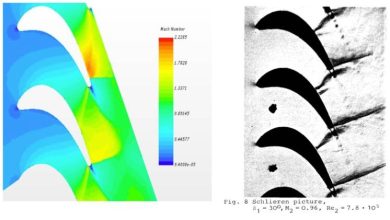Tailoring HVAC Certification for Special Needs Schools: Meeting Unique Environmental Needs

Heating, Ventilation, and Air Conditioning (HVAC) systems play a crucial role in maintaining comfortable and safe indoor environments in various settings, including schools. However, special needs schools present unique challenges and requirements regarding HVAC systems due to the diverse sensory, mobility, and health needs of their students.
By offering specialized HVAC certification programs tailored specifically for special needs schools, HVAC professionals can gain the knowledge and skills needed to address these unique challenges effectively. This article explores the niche of HVAC certification for special needs schools, its importance, and the potential impact on creating optimal indoor environments conducive to learning and well-being.
Understanding the Unique Environmental Needs of Special Needs Schools:
Special needs schools cater to students with a wide range of disabilities, including sensory processing disorders, mobility impairments, and respiratory conditions. These students often have unique hvac certification with environmental sensitivities and requirements, such as:
- Sensory sensitivities to noise, temperature, and lighting
- Mobility challenges requiring accessible spaces and equipment
- Respiratory conditions necessitating clean air and proper ventilation
- Sensory integration needs for creating calming and supportive environments
The Importance of HVAC Certification for Special Needs Schools:
HVAC systems play a crucial role in creating and maintaining indoor environments that support the health, comfort, and well-being of students and staff in special needs schools. Therefore, HVAC professionals need specialized training and certification to:
- Understand the unique environmental needs and challenges of special needs schools
- Design, install, and maintain HVAC systems that meet these specific requirements
- Implement strategies to optimize indoor air quality, temperature control, and sensory comfort
- Collaborate effectively with special needs school administrators, teachers, and healthcare professionals to address HVAC-related concerns and ensure a conducive learning environment for all students
Key Components of HVAC Certification for Special Needs Schools:
HVAC certification programs tailored for special needs schools should encompass the following key components:
Understanding Special Needs Populations:
- Providing foundational knowledge about the diverse disabilities and special needs commonly found in school settings, including sensory processing disorders, autism spectrum disorders, and physical disabilities.
Designing HVAC Systems for Accessibility and Inclusivity:
- Teaching principles of universal design and accessibility standards to ensure HVAC systems are accessible and accommodating for students with mobility impairments and other physical disabilities.
Optimizing Indoor Air Quality and Environmental Control:
- Focusing on strategies for maintaining clean air, proper ventilation, and optimal indoor environmental quality to support respiratory health and sensory comfort for students and staff.
Implementing Sensory-Friendly HVAC Solutions:
- Introducing techniques for creating sensory-friendly environments through HVAC design and operation, including noise reduction, temperature regulation, and lighting control.
Collaborating with School Stakeholders:
- Emphasizing the importance of collaboration and communication with school administrators, teachers, and healthcare professionals to understand specific needs, address concerns, and implement effective HVAC solutions.
The Impact of Specialized HVAC Certification on Special Needs Schools:
By offering specialized HVAC certification programs for special needs schools, HVAC professionals can:
- Enhance the comfort, safety, and well-being of students and staff by addressing their unique environmental needs and challenges.
- Create inclusive and supportive learning environments that promote academic achievement, socialization, and overall quality of life for students with disabilities.
- Improve energy efficiency and sustainability through the implementation of HVAC systems designed to meet specific requirements and reduce environmental impact.
- Foster collaboration and partnership between HVAC professionals and special needs schools to ensure ongoing support and maintenance of HVAC systems.









